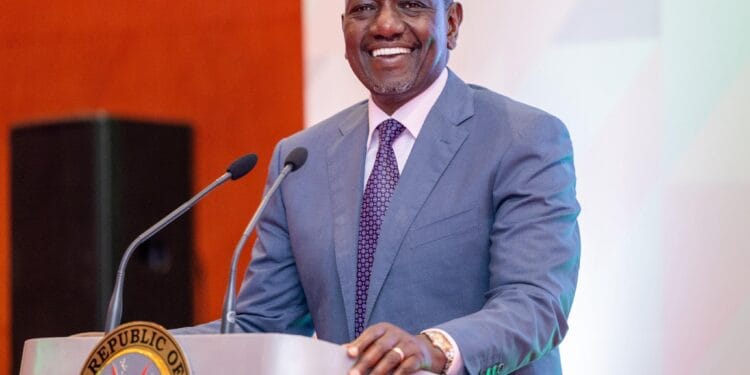President William Ruto announced a compensation plan for victims of the 2024 Gen Z protests, addressing those who lost their lives, were injured, or hospitalized during the unrest over the Finance Bill.
Speaking at a public event, Ruto stated, “I’ve set up the infrastructure and the mechanism to pay and compensate all those who lost their lives, were injured, and those who were hospitalized.”
The initiative aims to provide financial relief to affected families, but doubts persist, arguing it focuses on compensation rather than preventing future state-sponsored violence.
The plan has sparked debates about accountability and the government’s handling of protest-related grievances.The 2024 protests, which saw youths storm Parliament in June, resulted in over 60 deaths, hundreds injured, and significant property damage, according to human rights reports.
Ruto’s compensation plan, detailed in a Ministry of Interior statement, includes a structured framework to disburse funds through county governments, with priority given to families of the deceased and those with permanent injuries.
The announcement follows Ruto’s earlier claims of modernizing health facilities and addressing social issues like gambling, which he noted threatens Kenya’s youth.
However, the plan’s specifics remain vague, with no clear timeline or budget disclosed, fueling concerns about its implementation.
Citizens criticize the move as a political move to deflect from rising education costs and state accountability.The compensation mechanism involves a verification process to identify eligible victims, overseen by a task force under the Interior Ministry.
Families of deceased protesters are reportedly slated to receive up to KSh 500,000, while those with severe injuries may get between KSh 50,000 and KSh 200,000, based on injury assessments.
Hospitalized victims will have medical bills covered through partnerships with the Social Health Authority (SHA), despite ongoing SHA payment delays to hospitals.
Critics argue the plan sidesteps systemic issues like police brutality, noting it “does not inherently stop abductions, murders by state agents, or police brutality.”
This sentiment echoes broader calls for justice over financial payouts, particularly after allegations of state-sponsored violence in Murang’a, as highlighted by Deputy President Rigathi Gachagua.
Supporters view the compensation plan as a step toward healing, citing Ruto’s Hustler Fund success, which disbursed KSh 72 billion to 26 million Kenyans with an 83.6% repayment rate.
Others, however, see it as a superficial gesture, with William Ruto’s focus on “bold decisions” perceived as out of touch amid rising university fees and healthcare challenges.
The compensation plan’s success hinges on transparent execution, which remains uncertain given past delays in similar initiatives. As Kenya navigates this turbulent period, Ruto’s compensation plan for protest victims is a critical test of his administration’s commitment to justice.
Critics argue it prioritizes payouts over addressing root causes like police reform, a concern amplified by ongoing abductions and state violence allegations.
The plan’s rollout will be closely watched, particularly in protest-hit areas like Nairobi and Kisumu, where trust in government remains low. The debate over Ruto’s compensation plan reflects deeper societal divides, with many Kenyans demanding systemic change alongside financial relief.
The initiative’s vague framework and reliance on a troubled SHA system raise doubts about its effectiveness. As families await payouts, the government must address skepticism to restore public confidence.
In conclusion, President Ruto’s compensation plan for those killed, injured, or hospitalized during the 2024 protests aims to provide relief but faces criticism for lacking preventive measures.
The initiative, while a step toward addressing victims’ needs, must overcome transparency concerns and public distrust. As Kenya awaits implementation, the compensation plan’s success will depend on its ability to deliver justice beyond mere financial payouts.















